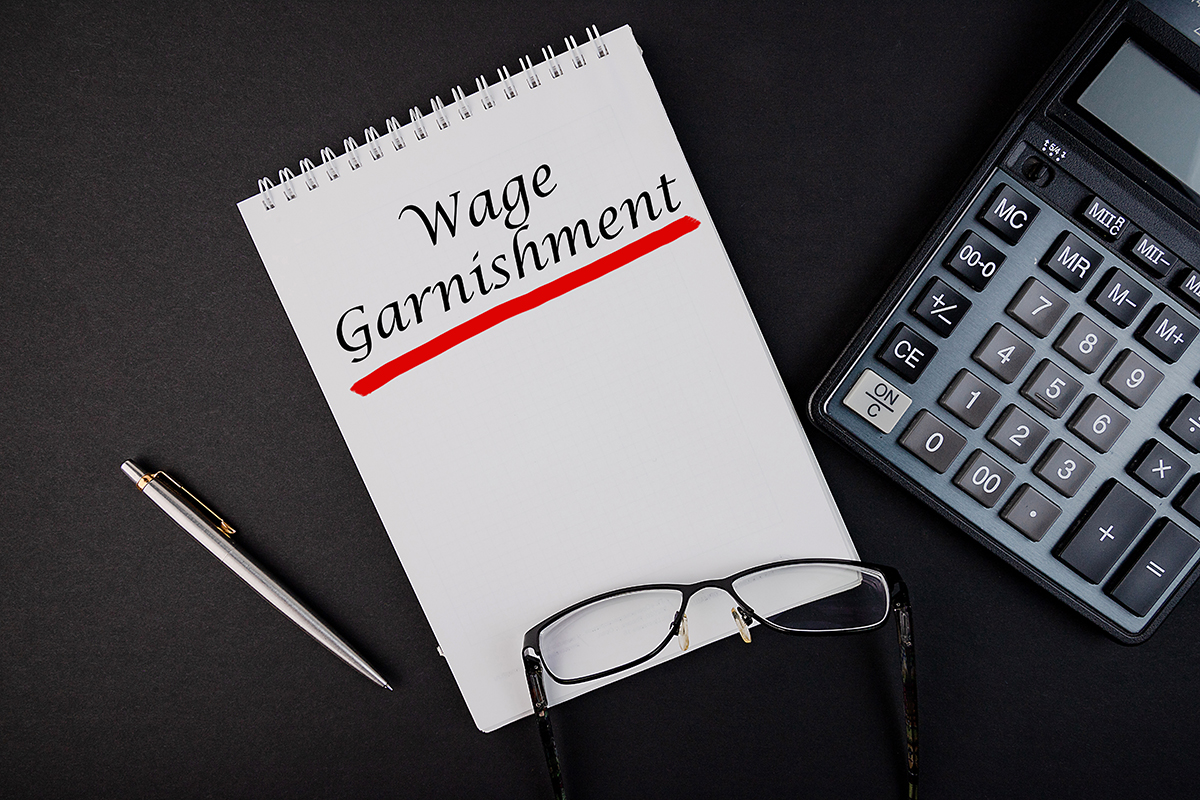How Wage Garnishment Works in Dearborn Heights
Facing wage garnishment in Dearborn Heights can be incredibly stressful, but debtors may find it helpful to know how to stop this financial strain.
Wage garnishment collects unpaid debts directly from a person’s employer if they fail to make payments on a debt owed. Often the first step in the wage garnishment process is for the creditor to sue the customer in court. The creditor provides evidence of the debt and the customer’s failure to pay. If the court finds in favor of the creditor, a judgment is obtained against the customer. This judgment confirms the customer’s legal obligation to repay the debt.
In Michigan, garnishments for student loan debts last about 7.6 months, whereas garnishments related to other creditor debts typically last about 4.8 months. The average garnishment takes around 10% of a worker’s gross earnings. [1] The amount a creditor can garnish from your wages is the smaller of either 25% of your disposable earnings or the amount by which your disposable earnings exceed 30 times the federal minimum wage (currently $10.33 per hour). [2]
The employer receives a notice of garnishment and must comply with the court order to withhold the specified amount from the customer’s wages. The employer then sends the withheld funds to the creditor until the debt is fully satisfied.

Stopping Wage Garnishment
Wage garnishment can exacerbate financial hardships, making it challenging to meet basic needs and improve financial situations. Wage garnishment is difficult for those experiencing it and this is why an experienced lawyer may be sought out to help stop wage garnishment.
The benefits of stopping wage garnishment include:
Protecting Income
Putting a halt to wage garnishment helps debtors safeguard their income. When creditors continuously garnish wages, it becomes increasingly difficult for individuals to meet their daily expenses, save for emergencies, or invest in their future. By stopping wage garnishment, individuals can ensure that their wages are not further reduced, allowing them to focus on managing their debts, improving their financial situation, and recovering from financial setbacks.

Achieving Financial Stability
Stopping wage garnishment in Dearborn Heights plays a vital role in achieving financial stability. When a significant portion of one’s wages is garnished, it often leads to a cycle of debt, making it difficult for individuals to break free from their financial burdens. By halting wage garnishment, debtors can regain control over their finances, develop a feasible budget, and channel their income towards essential expenses, debt repayment, and savings.
Pursuing a Fresh Start
When wages are continuously garnished, it may impact the credit score, ability to access loans, and overall financial well-being. By stopping wage garnishment and actively working towards resolving outstanding debts, credit can be rebuilt, better financial opportunities may be available, and a sense of financial freedom may be regained. This fresh start allows debtors to focus on their long-term financial goals, such as homeownership, retirement planning, or pursuing higher education.

Consequences of Wage Garnishment in Dearborn Heights
The immediate consequence of wage garnishment is a reduction in take-home pay, making it difficult for debtors to meet their daily expenses and financial obligations. This can lead to a downward spiral of debt and financial instability, causing stress and anxiety.
Wage garnishment can significantly impact a debtor’s credit score. The act of wage garnishment is often recorded on credit reports, signaling to potential lenders or creditors that the debtor is struggling financially and may have a higher credit risk. Consequently, obtaining loans, mortgages, or credit cards in the future becomes increasingly challenging, and if approvals are granted, they are likely to come with higher interest rates and less favorable terms.
Another consequence of wage garnishment is the potential negative impact on employment prospects. Some employers may view wage garnishment as a sign of financial irresponsibility or instability, which can affect a debtor’s chances of being hired or promoted. This can create a vicious cycle where wage garnishment leads to financial difficulties, which in turn, affects employment prospects and further financial struggles.
How Bankruptcy Stops Wage Garnishment in Dearborn Heights
When a debtor files for bankruptcy in Dearborn Heights, an automatic stay is immediately put into place. This automatic stay is a powerful provision under bankruptcy law that temporarily halts creditors from taking further collection actions against the debtor, including wage garnishments. The stay comes into effect the moment the bankruptcy petition is filed with the court, providing immediate relief to the debtor.
The impact of the automatic stay on wage garnishment is that it stops any ongoing garnishment actions, meaning that creditors cannot continue to garnish wages from the debtor’s paycheck while the bankruptcy proceedings are underway. This can provide immediate financial relief and stability to the debtor, allowing them to use their full earnings to support themselves and their families during the bankruptcy process.

If you are trying to stop wage garnishment, the experienced bankruptcy attorneys at Frego & Associates can help you navigate the bankruptcy process in Dearborn Heights. Contact Frego Law today.
FAQs
If a wage garnishment would prevent you from covering essential living costs, or you believe there was an error in the judgment, you have the right to object. The process and time frame for objecting can vary by state and debt type, so it’s key to act promptly and seek legal advice if needed. Typically, you’ll need to prove your eligibility for a judgment reversal or modification by providing documentation [3]
If garnishment is affecting your ability to afford basic needs, there’s a simplified process to challenge it, depending on the debt type (e.g., consumer debts, student loans). This might involve attending a court hearing and presenting evidence of your financial situation. [3]
To object to a garnishment, you’ll likely need to fill out forms such as a “claim of exemption” and a “financial statement” to detail your financial situation and the basis of your objection. These forms can usually be obtained from the courthouse that issued the garnishment order. [3]
Sources:
[1] Wage Garnishment in the U.S. Is More Common Than You Might Think. (2023, July 18). Kellogg Insight. https://insight.kellogg.northwestern.edu/article/wage-garnishment-in-u-s
[2] Michigan Minimum Wage Guide 2024. (2024, April 30). Heart & Hustle. https://www.spoton.com/blog/michigan-minimum-wage-guide/
[3] How to Stop a Garnishment – NerdWallet. (2021, August 5). Www.nerdwallet.com. https://www.nerdwallet.com/article/finance/how-to-stop-a-garnishment




